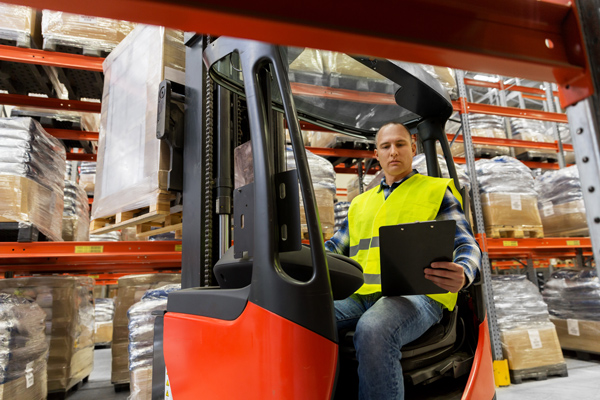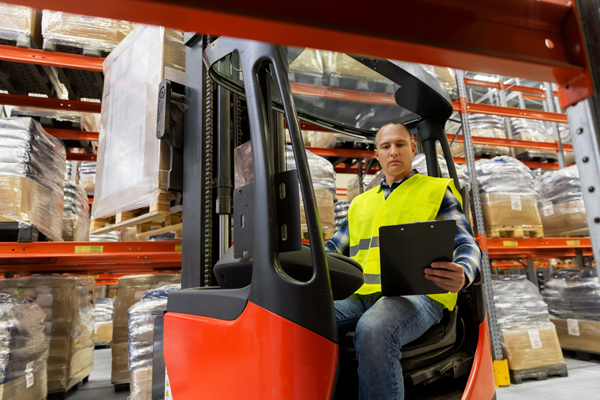
The supply chain continues to struggle with perpetual labor shortages. To solve the so-called Great Labor Crisis, companies are turning to technology to compensate for insufficient headcounts.
But is this really the right approach? Instead of viewing technology as a way to replace human effort, the industry should be approaching the problem from a human-first perspective.
Technologies like mobile barcoding and ERP mobility are not just solutions in process gaps. They enhance the workplace experience for your supply chain employees, in turn benefiting your business.
The Labor Crisis
Distribution center jobs have increased by more than 50% since 2014. In 2018, commercial real estate firm CBRE estimated there would be 452,000 new jobs for warehouse and distribution workers in 2019 alone. Yet, not all these jobs are getting filled. In the manufacturing and transportation sectors, as many as 89% of companies are struggling to find skilled workers. Millennials and Gen Z in particular are less likely to gravitate toward these positions.
The problem is two-fold: While breakneck growth in e-commerce drives demand for more supply chain jobs, which are in no short supply, unemployment remains at historic lows. With job seekers spoiled for choice, fewer are taking warehouse and manufacturing positions. Looming slowdown of major global economies will likely exacerbate the problem even further.
Solving the Labor Crisis: The Employee-first Approach
All too often, supply chain organizations use a “technology-first” approach to tackling labor shortages. This is understandable, since automation technology can fill in gaps left by the shortage of human workers and enhance productivity, efficiency and performance.
However, this approach ignores the human factor, de-incentivizing current and potential employees from entering the field at all. Today’s workforce is made up of 40% Millennials and post-Millennials, according to Pew Research, creating a work climate in which quality of life and work-life balance are crucial desirables. Young labor segments want to understand the why behind what they do and how their job contributes to the bigger picture.
Also Read: 4 Tips for Finding and Hiring Millennials »
With that in mind, supply chain organizations should re-align their thinking to a “human-first” approach. In this framework, technology is not a replacement or stopgap measure, but an investment in the quality and well-being of employees. The more employees feel equipped for success and secure in their positions, the happier they will be at their jobs, increasing performance, quality of work, and tenure – factors that trickle upward to positively impact the organization as a whole.
Why Use Technology to Invest in Employees?
Implementing new technology solutions can be a major investment. Dedicating budget to enriching the workplace experience may seem like wasted dollars. Data shows that investing in employee quality of life, ease of work and mental health generate substantial performance benefits, which in turn benefits their company.
The supply chain is no different.
Using mobile barcoding as an example, we will walk through several ways humanizing supply chain technology improves the lives of your workforce and your bottom line.
Easier Task Completion Makes for a More Attractive Job
Wrangling stacks of paper and slogging through time-consuming, repetitive manual processes is not only inadequate in the modern warehouse or plant, but inefficient and cumbersome for workers. Automating outdated processes through mobile barcoding increases accuracy, productivity, efficiency and more.
In human terms, however, mobile barcoding eliminates mundane tasks while making other activities easier to complete in less time and with higher satisfaction.
When potential new hires are searching the job market and they see that one job is harder than the other for the same pay, which job do you think they will pick? Not only will the job that uses mobile barcoding and automation win the candidate, that candidate will require 80% less training and operate with 25% greater efficiency.
You May Also Like: Addressing Talent Acquisition in SCM »
Inventory Accuracy Reduces Stress, Increases Peace of Mind
Mobile data collection improves inventory accuracy to 99% or more, so workers don’t have to worry about making mistakes or spend the additional time to correct them. This reduces stress by providing peace of mind.
Accuracy also enables warehouses to reduce on-hand stock levels by 10%, freeing up floorspace, and decreasing IT burden associated with tracking down and correcting data errors. In both cases, higher inventory accuracy eases stress levels for employees.
Not taking steps to manage employee stress can negatively impact morale, heightening the likelihood thaty they will skip out on coming to work altogether.
Read More: 3 Ways a Poorly Managed Inventory Can Ruin a Business »
Productivity Tools Motivate and Retain
ERP mobility has been shown to improve worker productivity by 30%. Employees know they can accomplish more in the same amount of time with less effort. Time saved frees your staff to engage in more meaningful tasks, making employees feel more useful and important. When your team feels their contribution is valuable and important, they become more motivated to work harder and put more care into each task, leading to higher quality and performance.
Supplying your people with the right tools, training and knowledge to succeed are essential to keeping them happy. Easy-to-use mobile barcode scanners for data collection help contribute to all three areas in supply chain activities. Job satisfaction retains employees longer, lengthening average tenure and increasing overall affinity for their employer.
Reducing turnover is an overlooked sinkhole in terms of cost. According to the Center for American Progress, the cost of replacing a single $10/hour employee exceeded $3,000 in 2012. Nearing a decade later, that cost is probably even higher.
Also Read: 4 Managerial Tactics That Boost Employee Satisfaction and Retention »
Automation and Mobility Creates a Safer Workplace
Working in a warehouse is a physically demanding job. Burnout, poor performance and injuries are all too common as a result, even among temporary and seasonal hires, and increase risk for injuries. The U.S. Bureau of Labor Statistics reveals that the warehouse and storage subsector’s recorded case rate was 5.1 in 2018—more than double the U.S. target of 2.0 or less in many other industries.
Equipping your workforce with enterprise mobile hardware and software can help mitigate injury risk. By extending ERP data to point-of-work, workers gain the flexibility to scan barcodes up to 70 feet away without having to re-arrange pallets, climb or stretch in risk-prone positions.
Automating data collection with mobile barcoding also eliminates tedious manual tasks, lowering opportunities for injuries from carpal tunnel, tennis elbow, and other repetitive stress or motion injuries. For employees experiencing chronic back, shoulder or cumulative trauma injuries, mobility can curtail the chances for re-injury.
Pair mobile barcoding’s data collection functionality with physical automation to further reduce physical strain, lower attrition rates and maximize productivity.
Invest in People, Not Technology
Technology is still as important as ever in supporting the supply chain. But it’s time we start thinking about technology differently. Technology isn’t so much a labor management strategy as an employee investment strategy that enhances human skills and equips people with the means to perform their jobs easier, faster, safer and more successfully.
Adjusting your business thinking to meet the changing priorities of newer, younger generations will help mitigate the challenges of today’s supply chain labor crisis by focusing on the well-being of your employees. In cultivating and upskilling your employees, you are creating qualitative long-term benefits for your organization while upholding ethical supply chain practices.
At RFgen, we believe in doing the right thing for our customers and their employees. Our mobile barcoding technology is one way to augment your human workforce by improving their ease of work, safety and lowering stress, while also boosting productivity, efficiency, accuracy and more.








